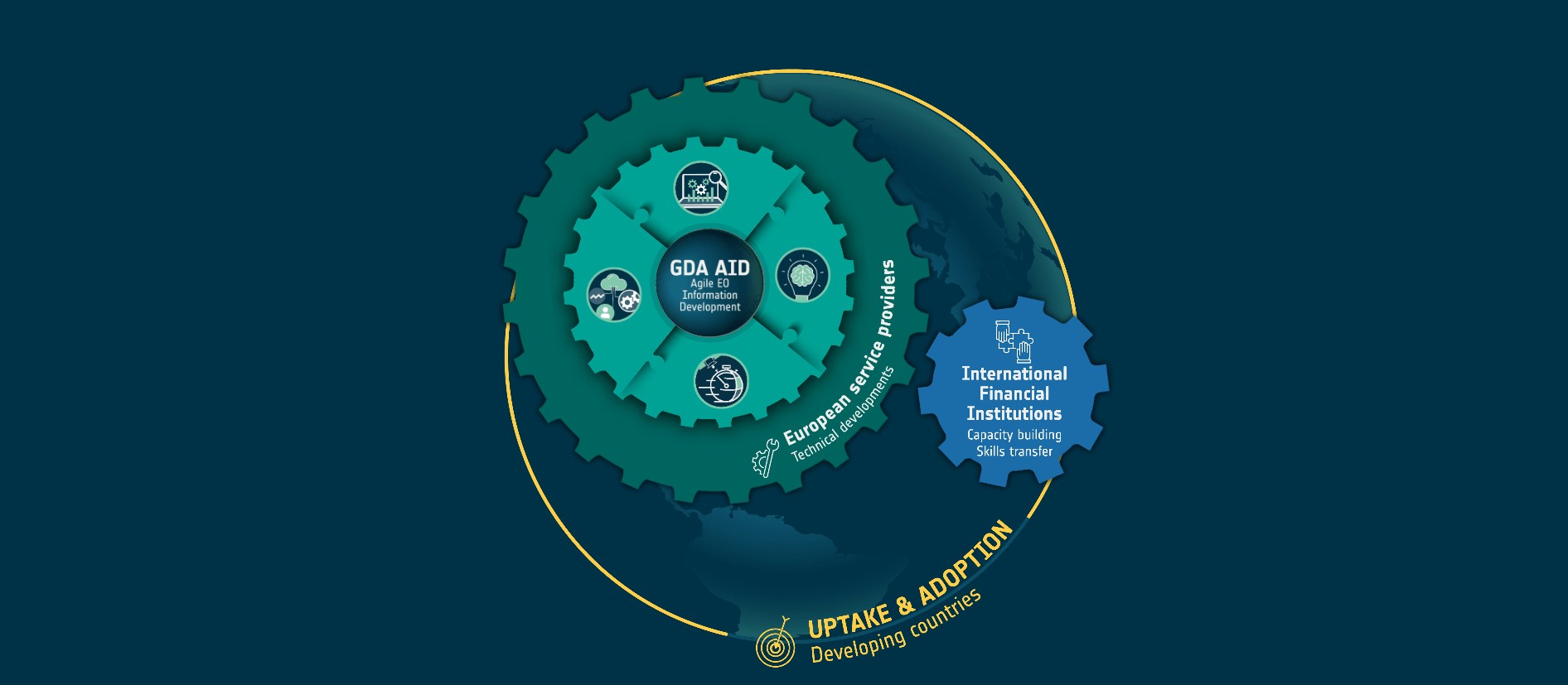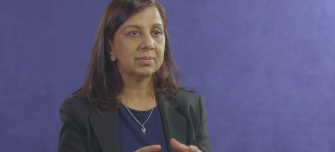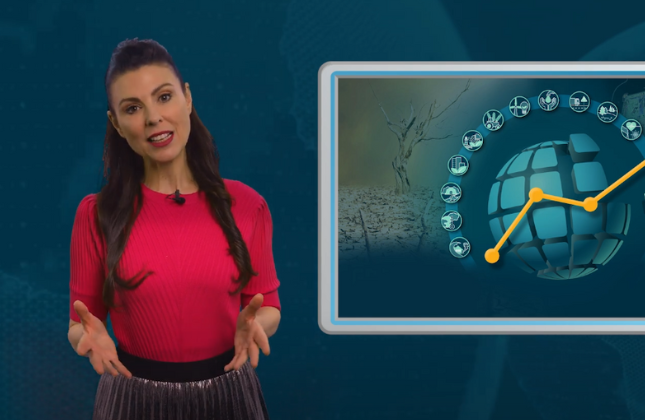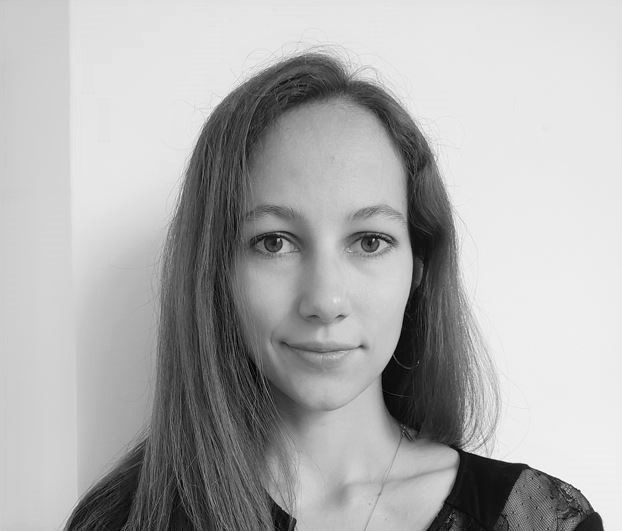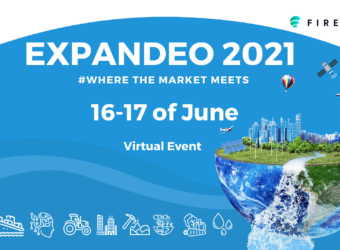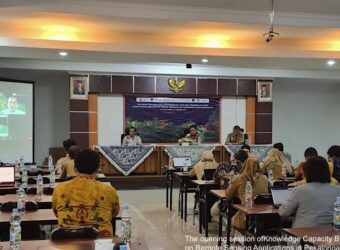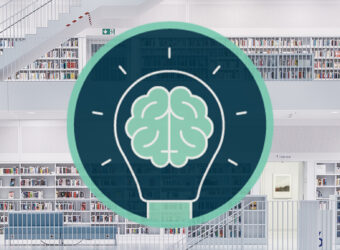On 15 December 2023, the Global Development Assistance (GDA) industry ecosystem came together at the European Space Agency Centre for Earth Observation (ESA — ESRIN) in Frascati, Italy, for a day of reflection and knowledge exchange. More than 40 European organisations involved in the GDA programme participated in the event and shared experiences, lessons, and impacts through panel discussions, interactive workshops, and networking.
An event requested by industry, designed for industry
The GDA Industry Engagement Day aimed to bring together European industry partners to share knowledge and experience of working within the GDA pThe GDA Industry Engagement Day aimed to bring together European industry partners to share knowledge and experience of working within the GDA programme. The event provided an invaluable opportunity for teams to exchange tips and tricks on their approaches to implementing GDA activities. It was a chance for the Earth Observation (EO) industry to directly share their experiences and collaborative challenges encountered in their respective GDA engagement processes, highlighting areas in need of additional support and suggesting ideas for improvement. It also received backing from ESA senior management, with the involvement of Simonetta Cheli, Director of ESA Earth Observation Programmes and Head of ESRIN, and Rune Floberghagen, Head of Climate action, Sustainability and Science Department, who not only provide solid support to the GDA programme but also shared insights into ESA’s current strategic approach during the event.
The event – supported by Caribou Space as part of the GDA M&E action – was thoughtfully designed with a strong focus on interactivity and active participation, encouraging a dynamic exchange between speakers and audience members. The face-to-face format was intentionally chosen to facilitate better discussion and reflection within and between all GDA consortia involved, each bringing diverse experiences and perspectives to the conversation. At this stage, each consortium implementing a GDA AID thematic activity is at a different point of the agile development process that underpins the product development components of the GDA programme.
The morning sessions started with a reminder of the complex global challenges that GDA has been set up to address, showcasing a pre-recorded video featuring Hariaday Mantong, a water resource specialist working for the Indonesian government. Using satellite imagery for the rehabilitation and reconstruction efforts in central Sulawesi province since the 2018 earthquake. Harry highlighted his government’s collaboration with ESA and the Asian Development Bank and expressed his appreciation for the EO tools and capacity building that have been highly valuable for his work. This inspiring message was a reflection of the GDA programme’s commitment to delivering real world impact that is rooted in end user needs and designed to develop in-country capabilities.
The various sessions covered topics relevant to the EO industry, particularly in the context of EO uptake in global development and ESA’s collaboration with International Financial Institutions (IFIs). The sessions addressed practical aspects, such as how to gather user requirements, create effective and impactful communication, maximise innovation, and ensure the long-term sustainability and adoption of EO products and services developed for IFIs and their Client States.
Out of the many fruitful discussions, here are some key takeaways that emerged from the event. Further insights and outcomes will be published in the forthcoming months through the upcoming report on the GDA programme’s year 2 evaluation.
From gathering user requirements to maximising innovation, it is important to embrace the diversity of IFI counterparts
IFIs are large organisations, with diverse teams of experts dealing with various topics connected to international development. In the realm of EO, this leads to a wide range of motivations for using EO along with different levels of awareness, experience, and capability to use EO in their working practices.
During the event, European EO industry representatives shared some effective practices for addressing the diverse needs in working with IFIs, acknowledging the challenges and intricacies of this process:
- Continuous engagement and communication. When the EO industry starts initial conversations with their users from the outset, they gain a deeper understanding of the varied needs of IFIs. Keeping an ongoing dialogue is crucial – it ensures that the industry’s efforts are not only relevant, but also genuinely resonate with end-users. A smart tip from seasoned professionals in the field is to keep those meeting groups small for more productive discussions and efficient insight gathering.
- Understanding capabilities and knowledge levels. The EO industry needs to thoroughly understand IFI representatives’ skills and knowledge. This deep dive, spanning from management to tech experts, is essential for developing effective solutions that build trust and encourage participation. Discussions between industry and the user community can also help to form a shared understanding of what capacity building is required and how products could be integrated into working practices.
- Innovative delivery in EO. Progress in EO hinges on both innovation and its effective delivery to IFIs. The challenge lies in achieving the right balance between the creation of advanced models and ensuring that any products are comprehensible and functional for IFIs. In practice this means ensuring necessary data sources can be appropriately validated, and products are competitive in the market, user-friendly and accessible.
In this complex terrain, ESA secondees located within the IFIs play an invaluable role, similar to that of mountain guides in the most inaccessible environments. Their job is to help European industry navigate the intricate web of this user community. Their experience and insights are crucial in charting a course through this landscape, ensuring a clear understanding of different needs and capabilities.
“Mountain guides instantly perceive your interest and experience, and therefore, help you navigate safely to your destination”
David Taverner, Caribou Space
Bringing EO to life: the power of dynamic storytelling
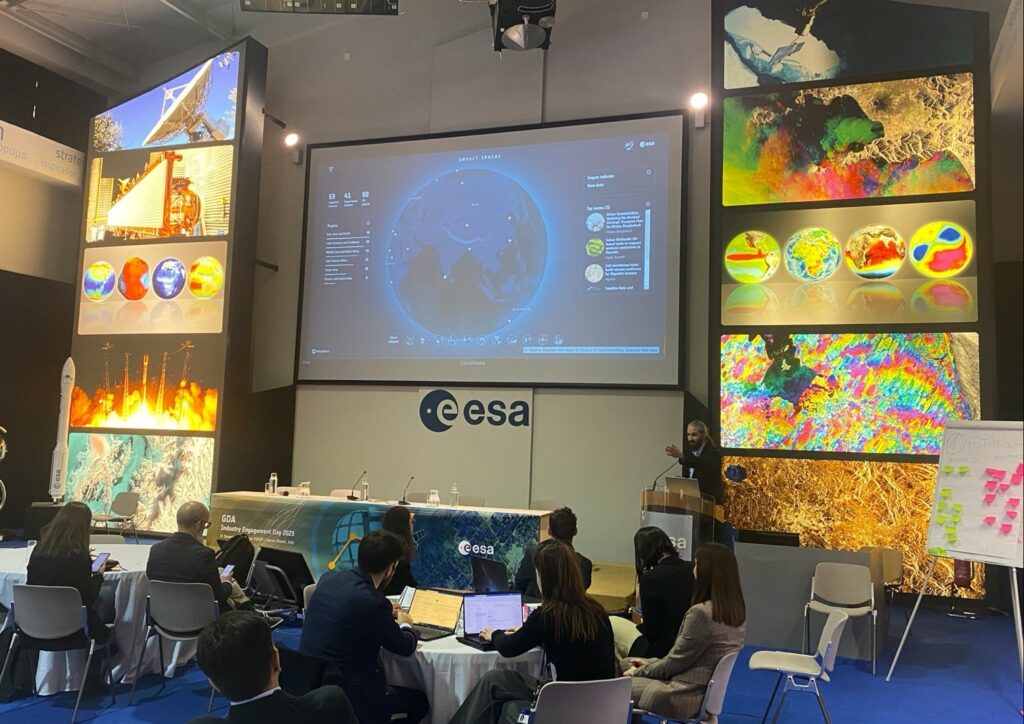
In an effort to effectively communicate the benefits and applications of EO, innovative tools that blend technology and creativity were showcased during the event. These tools aim at bridging the gap between complex EO data and its practical implications in development assistance. One such tool is the Impact Sphere, developed by the GDA CCC consortium, which is set to be integrated into the GDA web portal. This virtual globe environment utilises visual storytelling techniques such as story maps and multi-layer storyboards. EO data are presented in a visually engaging and easily digestible format, making complex information accessible to individuals at various levels of technical expertise.
Another groundbreaking tool planned to be launched soon is Cosmopolis, designed to demystify the use of EO for urban sustainability. This virtual world offers an interactive experience where users can explore and inquire about EO through conversations with a virtual satellite EO guide. The simplicity of these approaches makes them effective tools for conveying the benefits of EO to a wider audience, breaking down technical barriers and enhancing understanding.
IFI co-ownership, proactivity, and satisfaction are key to accelerate EO uptake
During the sessions, presenters highlighted essential factors to encourage successful adoption of EO solutions within the operations of IFIs, as well as alignment of IFI resources. Reflecting on these insights, three key elements stand out:
- Fostering ownership with continuous engagement: Continuous engagement and communication do not only help with understanding IFIs needs — they are also important to keep IFIs actively involved through the whole development cycle. In that way, IFIs do not remain only passive beneficiaries, but they build ownership over EO services and products, which is crucial for the operational uptake of EO in development assistance.
- Being proactive in defining alignment and complementary activities: Finally, proactive support is needed to help IFIs to align resources and conduct complementary activities. Many IFIs may not have the time or resources to think about possible sources of additional financing or other opportunities to adopt GDA-generated products. By being proactive, the EO industry together with ESA at the interface can propose ways to improve and complement existing efforts, thus creating more value and potential avenues for alignment.
- Ensuring satisfaction through timeliness and quality: It is not only the quality and relevance of EO products that is important, but also the ability to deliver them on time for the IFI counterparts. Delays in delivery can jeopardise opportunities for effective use of produced data in IFIs and may open doors for competitors.
Scaling & transferability: life after ESA
As the EO industry starts looking for opportunities beyond the GDA programme, a deeper understanding of the mechanisms and dynamics of IFIs becomes crucial.
Monitoring the publication of EO-related tenders on the respective platforms provided by the IFIs has proven to be a cumbersome and time-consuming task for the industry. Therefore, in order to ease and streamline the identification of EO-related procurement opportunities, the GDA program team has been working on the elaboration of an automated procurement screening tool which was launched on the occasion of the Industry Engagement Day. This tool consists of an automated text analytics processing chain running on the cloud and screening procurement notices on a regular basis (i.e. daily, weekly) by searching for keywords related to Earth Observation. While the first version focuses on World Bank procurements, the GDA team is currently working on an additional module to cover ADB procurements.
Another significant aspect is identifying budget holders and potential mainstreaming prospects within IFIs at an early stage. Understanding where funding comes from and which projects are most promising can guide the EO industry to align their bids more strategically with the requirements of IFIs.
Key to this process is the use of meetings and, where possible, in-person visits as mentioned above. These customised approaches to relationship building are important to establish trust, co-ownership and co-governance with a view to ensuring a smooth transition from ESA-funded activities to IFI-funded projects.
Looking ahead to GDA in 2024 and beyond
2023 was a busy year for the GDA programme, which grew substantially since its launch in 2019, with over 100 products being currently developed in support of 64 projects and across 66 countries. 2024 promises to be as ambitious, with the start of three additional thematic areas — namely GDA AID Transport & Infrastructure, Public Health, and Forest Management.
As the first GDA AID activities come to an end, this period becomes critical for planning the transition of services. It is the time to finalise agreements and look for further opportunities within the IFIs as well as potential other stakeholders including National Development Agencies. This phase serves not only to conclude ongoing projects, but also to lay the foundation for future collaborations and to ensure the continuity of EO services in the changing landscape of international financial assistance and development.
All those who attended the GDA Industry Engagement Day will shortly be receiving an invitation to provide feedback on the event as well as recommendations on how we could improve future engagement activities. We also invite your thoughts and reflections on the key takeaways we have presented here. Please do reach out to the team at Caribou Digital if you have any feedback on these reflections to nicki@cariboudigital.net.
The GDA Industry Engagement Day 2023 was organised in line with ISO 20121 criteria for Sustainable Events. Every action taken, from locally sourced event gifts to minimising paper usage and using reusable materials in catering, aimed to reduce the event’s impact.



